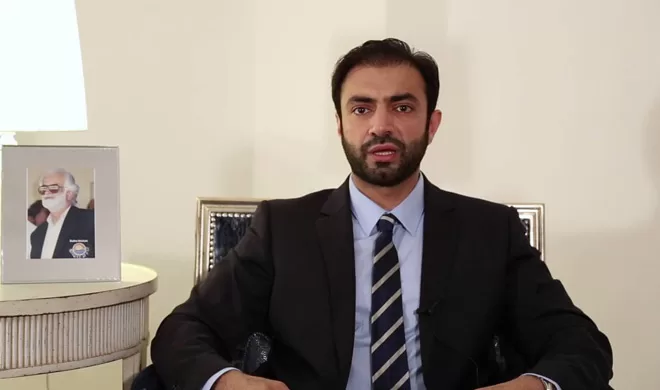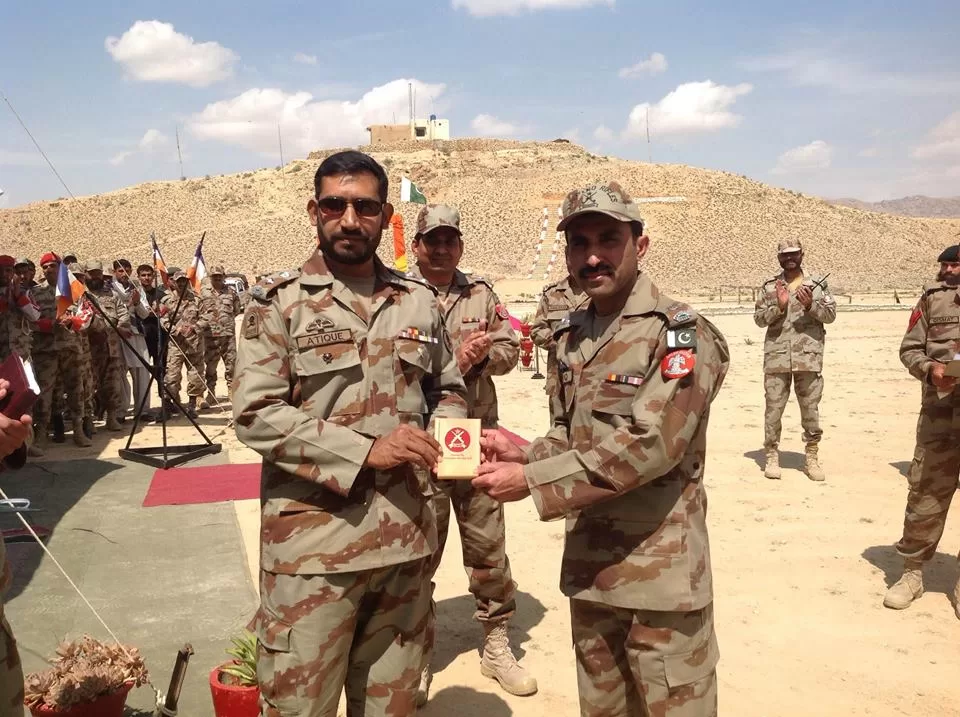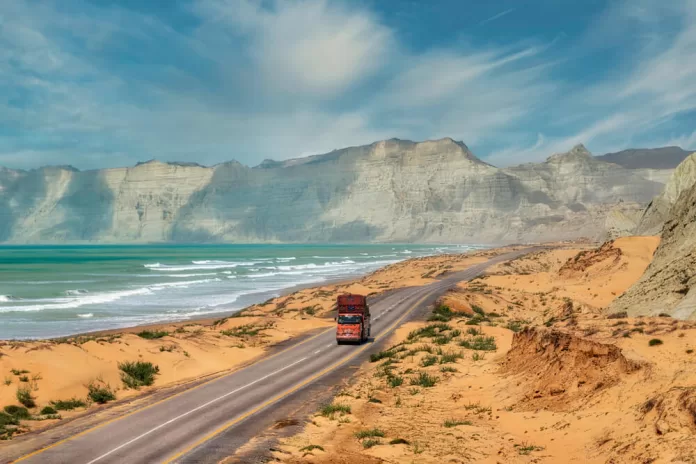The media hype being generated about Balochistan is a glaring example where the security establishment is being held solely responsible for the unfolding crisis. Most of our problems stem from jumping to conclusions based on incorrect facts, and going on to deliberately distorting then to suit mass perception. There are targeted killings going on and people are disappearing, one does not doubt that the elements of the State are responsible for some of them, and that these are mostly people we generally know as the Baloch. An equal number, if not more, of Pashtuns and Punjabi settlers in Balochistan are being murdered in cold blood by the “sons of the soil” but the media seems to give it only cursory mention.
I took part in military operations in Balochistan in 1973 commanding a Rifle Company in 44 Punjab (now 4 Sindh). When my son was born in Karachi on 29 December 1973 my company was under heavy fire by Marri insurgents near Kahan. Through the year we had had many Shaheed and injured fighting the tribals, in one instance they cut off the heads of 19 of our soldiers. We could have retaliated in kind when we surrounded and captured those that did it but didn’t, what held us back was that the Marris opposing us were basically simple people who had no reason to fight except that they were so ordered by their Sardar living comfortably in Kabul at that time. The 1973 military operation against the Marris (and sometime later the Mengals) was ordered by a democratic government leaded by President Zulfikar Ali Bhutto on the advice and instigation of then Governor Akbar Khan Bhutto, “to eliminate the miscreants”.
Nadir Shah installed Naseer Khan Brahui as the Nizam of Kalat Region in 1740, the Baloch/Brahui areas comprised Sarawan, Jhalawan, Mekran and Kachi, the region included not only Baloch and Brahui tribes but also some from Sindh. Of the three tribes in the forefront of the protest in varying degree, Marri and Mengal Baloch, the Bugtis are actually Rahejas of Sindhi origin. Conversely the Bijranis of Sindh originate from the Marris, and so on and so forth. History has ethnicity in its embrace into one melting pot. This has all been duly recorded by none other than a member of the Sindh Public Services Commission Mr. A D Dandpota at the turn of the last century. Out of the 7 million people populating Balochistan today, Baloch (including the Brahuis) and the Pakhtuns are almost in equal number, with about a million of other ethnicities resident including those settlers. More Baloch live in Punjab (7 million) and Sindh (4 million) than in Balochistan, and that almost all of them in the old Kalat Division. Till a few years ago, the Governor was Pashtun and the Chief Minister Baloch so as to equate the ethnic balance, why was this practice stopped?

As a multi-racial, multi-ethnic land populated by diverse races, it is absurd that a small militant minority led by the descendants of cruel and despotic Sardars speak holistically about “democracy and independence”. For the record, Brahamdagh Bugti is a descendant of Shahbaz Khan Bugti who was elevated from being a Sardar to a Nawab by Maj Sandeman in 1890 alongwith Sardar Mehrullah Khan Mengal for helping the British quell the “Hur Revolt” in Sindh. This is the same Maj Sandeman whom the proud Baloch Sardars of yesteryear carried on a litter on their shoulders from Punjab into Balochistan for many scores of miles when his horse died. Quetta Club has many old photos of the ancestors of today’s Baloch Nawabs prostrating themselves before their British masters in the club premises. There was no protest by the Sardars when they were subjected to humiliating terms by the British for their continued rule on Nawabs and Sardars, viz (1) single heir to be designate by the British (2) he would serve conditionally on the government’s pleasure (3) information service to be provided by the British during his terms of office (4) his incumbency was strictly subject to good behaviour and (5) his services to British would be on call. And all these rules which lasted till 1947! The Baloch now protest Army cantonments but did not protest when the British made the biggest cantonment in British India after Agra in Quetta in the early 1900s. Till the 60s Quetta was nothing but a garrison town populated mainly by the Hazara Pashtuns.
The three “Nawabs” of the Baloch who are now agitating for “independence”, as are some sardars, have taken repeated oaths of allegiance to Pakistan as Governors, Chief Ministers, Federal and Provincial Ministers, Members of the Senate, National and Provincial Assemblies. There has been a Baloch President and a Baloch Prime Minister. During their time in office none of the Baloch Nawabs and Sardars made any effort to uplift their own people, most of the money meant for development landed up in their pockets, mainly to finance their luxurious lifestyle and profligate ways, both at home and abroad. Has anyone ever taken any Baloch Sardar to task to account for all the funds doled out to them for the uplift of their people? The media should be fair and compare their lifestyle and houses in Karachi and in Quetta with the squalid huts of the Baloch in Sui, Dera Bugti, Mawand, Kahan, etc. Gas from Sui did not go to Quetta and other towns till Gen Rahimuddin pushed it through as the Governor in the mid 80s within months. If the Baloch people live in penury and poverty today it is only because of the hereditary rulers planted on them by the British. There is a problem in Balochistan and it has to be addressed but we must get all the communities on the table and not talk the Sardars. These Sardars represent only their own narrow vested interests and not that of those whom they call their people.
One has to recognize that the situation availing today is a very complex issue, most of it can be attributed to neglect, bad governance, corruption, inadequate capacities of law enforcement agencies (LEAs) to establish writ of State and to ward-off foreign intervention. There is now a very deliberate attempt to create perception of non Baloch hegemony, the political government must take ownership of territorial integrity and not dump it on the military. The fact remains that both the political and administrative leadership is native Baloch, the Army is sincerely committed to help them and that is acknowledged privately, if not publicly. The Army has stopped construction of any further cantonments and there is no military operation ongoing at the moment, or has been for several years. However critical areas like the coastal belt have to be guarded, so must be the socio-economic infra-structure, by the paramilitary Frontier Corps (FC) Which nation can allow communications and facilities of the public to be disrupted at will? The cantonment at Sui has been converted into an education center. Primary schools paid for by international agencies were turned into “Autaqs” by the Nawabs and sardars, they now actually have children getting education. Baloch youth are now joining the Army and FC in great numbers.
The problem is that the present Federal government is all rhetoric and no action, despite the NFC Award virtually no development has been carried out, even with allocation of double the funds. There is no accountability of the money being spent. No effect has been made by government or civic society to address the social aspect of the issue, the tribal Sardars in self-imposed exile breathe fire against the State in the media but do not represent the majority of the ethnic Baloch nor the vast majority of non-Baloch who populate Balochistan today.

“Kill and dump” is certainly not the answer, in fact should be condemned, but what should the Frontier Corps (FC) do when they are violently attacked or have to defend critical socio-economic installations like gas pipelines, electric transmission towers, etc? What about their personnel who die or are maimed? Should they allow the non- Baloch to be murdered and driven out of their homes? Unfortunately disproportionate media projection of the separatist leaders encourages ethnicity and violence. While it must bring into forces the excesses of the security force, the media has a responsibility to the populace. It is their bounden duty to give the correct facts about the excesses on the populace by the leaders who remain in “power” by the barrel of the gun rather then by full exercise of the democratic vote. Who gave them the right to openly brandish their weapons in public, and in such numbers?
While dialogue must be a constant process, history confirms that the concept of appeasement is disastrous for national security, it tacitly accepts the erosion of national interest. To negotiate with their hereditary rulers and their hired guns, and that also of a minority of the population, is tantamount to condemning the people to continued slavery. Compromise of basic tenets of society at the point of gun will be fatal for the Federation. The people of Balochistan, Baloch and non- Baloch, must enjoy the manifold wealth buried in their land, they have waited for this for centuries.
The Baloch must be taken out of their life of deprivation and want, they deserve all our sympathy, so do the other oppressed people in other Provinces suffering under a very unfair feudal system that disfigures the electoral vote and ensures merit is a disqualifier, only absolute loyalty gets premium. The “democracy” that the feudal lords espouse is limited to their own version of despotic role, under its veneer a vast majority has been kept by them virtually as slaves. Almost every Baloch tribal serving out of Balochistan has to give part of his earnings to his Sardar or his family suffers. The incongruity of it all is that the military wants democracy for the Baloch people, but has not been able to translate its objectives into practice , this can only be possible under democratic dispensation which must obtain freedom for the Baloch from cruel depraved rulers who have the power of life and death over them and their children.
While the country cannot be held hostage by a murderous minority, the answer to all this is to not to fight fire with fire alone but only do selective response, if and when needed. A dialogue must be immediately started with all the groups who comprise the population of Balochistan today. Local Bodies Elections must be carried out and the State must ensure it is free and fair, and not influenced by the diktat of the Sardar who presently holds power of life and death over the populace. It is only by freeing the Baloch from the cruelty of the Nawabs and Sardars that the benefits of democracy will go to the people of Balochistan, Baloch and non Baloch, but all of them Pakistanis.
Feudalism is a curse, not only on the people of Balochistan but the entire country. It can only be eliminated by empowering the people at the grassroots level.
Courtesy: The News




